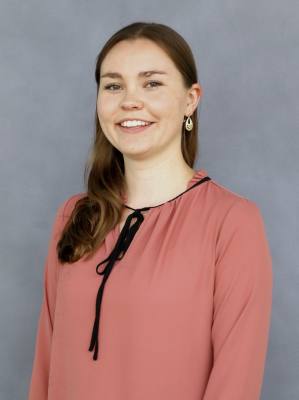In response, the district plans to implement more hands-on learning. Some board of trustees members questioned during the Jan. 27 meeting if homework exasperates inequity.
AISD has been facing dropping student standardized test scores since the onset of the pandemic, especially among students from economically disadvantaged families.
The percentage of AISD’s economically disadvantaged third-graders who met grade-level math expectations dropped by roughly a third from 2018-19 to 2021-22, according to data from the standardized math test called Measures of Academic Progress.
“Keep in mind, the last time these students were in a full year of school that was not interrupted, they were kindergartners,” Superintendent Stephanie Elizalde said at the Jan. 27 meeting of the board of trustees. “These data are not numbers. These data are individual students. These are our parents’ children.”
The district’s scorecard lays out a goal that the number of third-graders meeting expectations increase from 39% in the 2018-19 school year by August 2026. Elizalde presented the board with data showing the percentage dropped to 11% in the 2021-22 school year.
Economically disadvantaged third-graders across the state saw a similar drop. In 2018, 40% of the state’s students in that group met math standards in 2018, compared to 20% in 2021.
Elizalde said part of the solution is helping students understand math as it works in the real world rather than focusing on abstract thinking.
Elizalde gave an example of a math lesson involving a word problem related to selling peaches at a fruit stand but pointed out that not all AISD third-graders have experienced a fresh peach due to growing up in a food desert. She added if teachers asked their third-graders where peaches come from, some might say “a can.”
She said third grade students who have no problem with math can still be thrown off by working with examples that they do not understand.
“I can’t picture what I don’t have exposure or experience with,” Elizalde said.
Enriching a lesson with actual peaches offered to students could change the learning experience, Elizalde said. She added some research indicates that when more senses are engaged in the learning process, students shift from short-term memory to long-term memory.
Trustee Kristin Ashy said homework can be a problem for economically disadvantaged students, yet repetition is important with math learning. Trustee Lugo said homework should be customized to students, including a reduced homework load for students who are doing well with material and whose caretakers are particularly busy. Trustee Ofelia Zapata said her granddaughter has stayed up until 2 or 3 a.m. working on homework and then found out at school that her teacher did not plan to grade the work.
Dr. Erin Bown-Anderson answered that homework should extend learning in the classroom, but if a homework grade is going to be a barrier or frustration, it needs to be reexamined. Elizalde added that students should not receive homework until it is clear they understand the material. At that point, homework can serve as repetition. Elizalde said customized homework requires a lot of extra work for teachers, but adaptive homework software could be helpful.
"This is an area we are prioritizing right now," Elizalde said. "If homework sheets in isolation were going to create equity, all of our schools would have been outstanding a long time ago."





